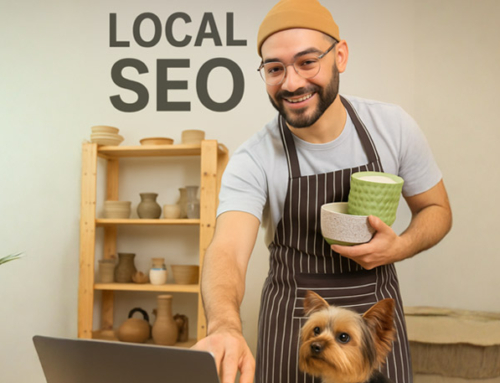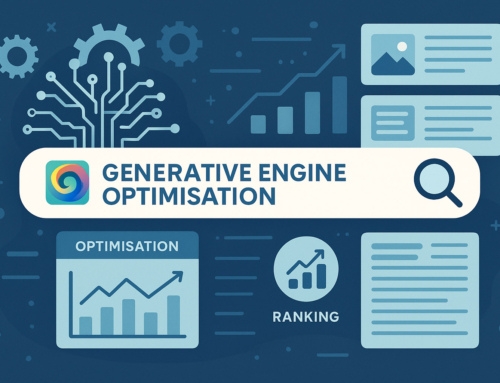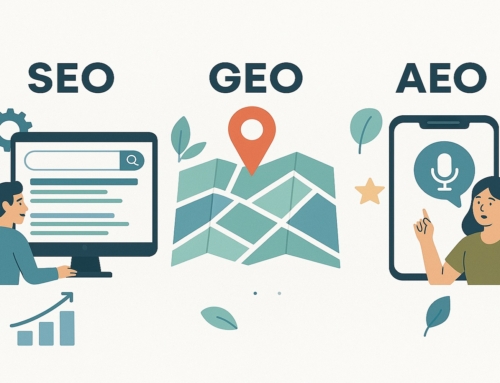
In today’s online world, having a digital strategy is without a doubt a must for any business – and a business’ website is an important component of this strategy. Your website has the potential to enable you to reach a huge audience and to take your business to the next level. So, ensuring your website is optimised for the task is crucial. With optimisation of your website in mind, there are two aspects to which you need to pay particular attention, namely ‘on-page’ and ‘off page’ SEO.
As a general rule, on-page SEO refers to anything happening on your website or page – these are things that are under your direct control. On-page SEO is focused on optimising the parts of your website that affect the overall readability of the site for visitors as well as how easily the search engines can understand what your site is about and navigate its structure and content, thereby determining its search engine ranking. The 7 most important elements of on-page SEO include:
The 7 most important elements of on-page SEO include:
- Page content
- Alt text
- Title tags
- Header tags
- URL structure
- Page loading speed
- Internal links
Off-page SEO, on the other hand, covers factors outside of your own website that tells the search engines that your content provides value for its users – in other words, it’s all about establishing the ‘authority’ of your website and its content. The more highly regarded it is by the outside world, the higher it will rank in the search engine results.
To put it simply…
Your on-page SEO determines what your website is ranked for, while your off-page SEO reflects how highly others regard your website and its content, which influences where the search engines will rank it in their search results.
The 7 most important elements of on-page SEO
1. Page content
We say this all the time – and we’ll probably continue saying it till the end of time too – your actual on-page content is always going to be one of the biggest drivers of SEO. Search engines like Google are getting more and more sophisticated at identifying well-crafted content. They take note of things like the reading level of your text and how long readers stay on your pages. So, your content needs to be well-written and of high-quality, and by that we mean it needs to be interesting, entertaining and/or useful to your visitors.
Also, when visitors arrive at your site, they need to be able to quickly and easily find what they’re looking for, they need to be able to read and understand it easily, and what they find ultimately needs to provide them with something that they value. If you use images (and you really should), then make sure they are the sufficiently low resolution to not slow down page loading times. They also need to relate meaningfully to your content and they must tie back to your keyword strategy with good alt text tags.
2. Alt text
It’s vital that you include an ‘alt text’ markup tag on each graphic or image, with its name and an accurate description of it. Your CMS (content management system) should permit you to add ‘alt text’ to the images on your website. Alt text isn’t visible to most visitors – it’s used by screen reader software to help blind visitors understand the content of your page graphics; it’s also used by search engines to help them understand the content of your page. So, inserting relevant keywords in an accurate description of the specific graphic feature is very important.
3. Title tags
Title tags are still one of the main ways search engines categorise and index web pages. So, your title tags should relate directly to your page content – a good way to ensure this is to include your targeted keywords in the title tag of each page on your site. However, make sure you do so in a sensible and meaningful way.
4. Header tags
Search engines use your header tags (in other words, the H1, H2, H3 headings on your page) to rank the importance of each section of text within the page. So, it’s a good idea to include your targeted keywords in these headings to reinforce the overall theme or message of your content. Just make sure you do it in a way that still makes sense as well as reflecting the actual content on the specific page.
5. URL structure
Search engines such as Google like URLs that makes sense to readers. So, avoid using lots of jumbled letters or numbers and instead give your page file names that mirror the content. If possible, include your targeted keywords in your URLs. However, before you try changing your existing URLs, talk to someone who knows what they’re doing.
The team at Auckland digital marketing agency Net Branding know how to overcome the pitfalls associated with doing this willy-nilly – so give us a call before you try changing your existing URLs.
6. Page loading speed
Internet surfers have notoriously short attention spans and very little patience for sites that take a long time to load – and by ‘long’ we mean anything longer than a few seconds. So, fast-loading pages are a must! The search engines want to ensure their users can quickly find what they’re looking for, so the faster your pages load the higher they will be ranked in the search results. Also, you’ll want to ensure that visitors can access your site quickly on any device. If your site isn’t able to provide a fast and efficient experience to visitors using phones or tablets, your site will be tagged as not mobile friendly and its ranking will be downgraded.
7. Internal links
Are you linking to your own content? You should be. Including links to your pages to content on other pages of your website is useful for both your visitors and the search engines. So include these as much as possible where they make sense and add to the visitor experience. Remember, search engines like to see signs of a good visitor experience!
While internal linking is very useful in helping the search engines establish your site architecture, internal linking can help your visitors navigate your website, which helps improve their time-on-page.
To summarise…
Your on-page SEO is all about ensuring your pages can be read as easily as possible by both your visitors and the various search engines. The beauty of the elements of on-page SEO is that these are all things YOU can control – so how effective they are is entirely up to YOU!
The better your on-page SEO is, the more easily the search engines will be able to index your pages, understand what your website is about, and navigate its structure and content, all of which will result in your website being ranked accordingly. Once you’ve got your on-page SEO sorted, it’s time to focus on your off-page SEO.
Off page SEO
‘Domain Authority’ or increasing the authority of your website is a blanket term that covers a number of elements that together add up to how authoritative and reliable your website and its content is perceived by the big wide digital world out there. Search engines like Google determine the authority of your website by looking at who is linking to you. The more well-regarded websites that link organically to your site, the greater your reputation will be within the Google Algorithm.
Of course, the first step to learning these valuable links starts by creating valuable content (i.e. the most important element of on-page SEO) – awesome content that people want to share and link to because they see it as valuable. Once you’ve done that, then you can focus on increasing the number and quality of those backlinks.
Here are some easy ways you can go about securing links back to your website.
- Share your content on social media. A website that enjoys a strong social media presence will also tend to achieve higher search rankings. This makes sense simply because a site that is shared widely on the major social networks is bound to see a boost in its SEO.
- Become a guest blogger on a well-regarded (and popular) website is another great way to boost your off-page SEO. Not only will doing so provide you with great exposure to a wider audience but you’ll also increase the perception of your own site’s authority.
- Develop email marketing campaigns to influencers in your industry – if done right, this can result in some great backlinks to your website from really high-quality players.
How to ensure your website achieves maximum potential
As you can see from the above, both on-page and off page SEO are equally important. However, unless you get your on-page SEO in order before you focus on your off-page SEO, it’s unlikely you’ll enjoy much success with the search engines. Including both on-page and off page SEO in your digital strategy is the most effective way to improve your website’s ranking by the search engines and ensure your website performs to its maximum potential.
Want help to develop your website into a channel that will help you significantly grow your business? Then simply talk to the specialist team at Auckland digital marketing agency Net Branding. We have years of in-depth website development, social media and digital marketing experience designing and implementing pragmatic online strategies that have delivered proven results for businesses of all shapes and sizes. We’re just a phone call or click away – so get in touch with us today.






